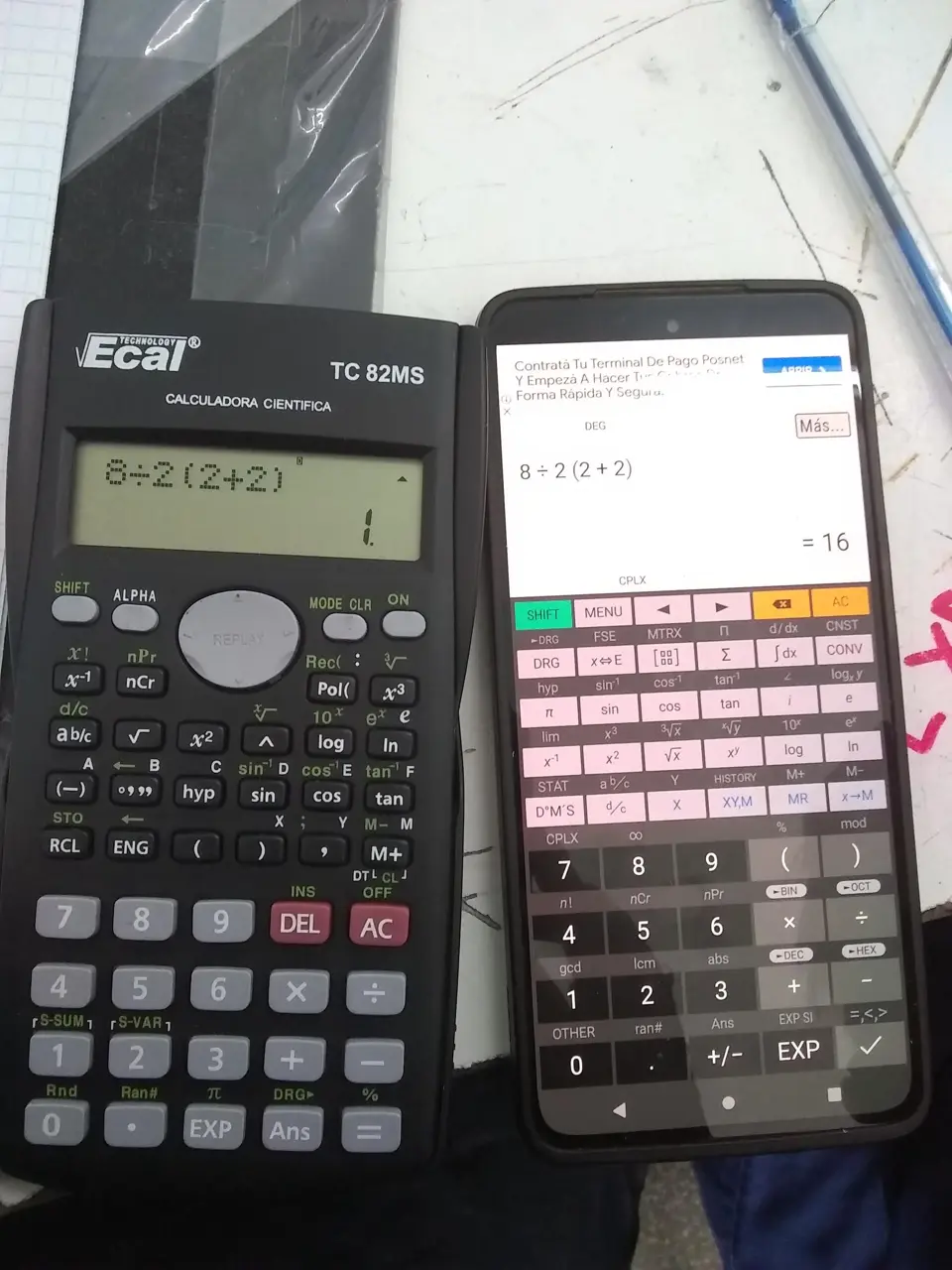this post was submitted on 03 Dec 2023
420 points (99.8% liked)
196
16597 readers
1783 users here now
Be sure to follow the rule before you head out.
Rule: You must post before you leave.
founded 1 year ago
MODERATORS
you are viewing a single comment's thread
view the rest of the comments
view the rest of the comments

The problem with this is that the division symbol is not an accurate representation of the intended meaning. Division is usually written in fractions which has an implied set of parenthesis, and is the same priority as multiplication. This is because dividing by a number is the same as multiplying by the inverse, same as subtracting is adding the negative of a number.
8/2(2+2) could be rewritten as 8×1/2×(2+2) or (8×(2+2))/2 which both resolve into 16.
You left out the way it can be rewritten which most mathematicians would actually use, which is 8/(2(2+2)), which resolves to 1.
Division and fractions aren't the same thing.
Fractions are explicitly Terms. Terms are separated by operators (such as division) and joined by grouping symbols (such as a fraction bar), so 1÷2 is 2 terms, but ½ is 1 term.
No, it can't. 2(2+2) is 1 term, in the denominator. When you added the multiply you broke it into 2 terms, and sent the (2+2) into the numerator, thus leading to a different answer. 8/2(2+2)=1.